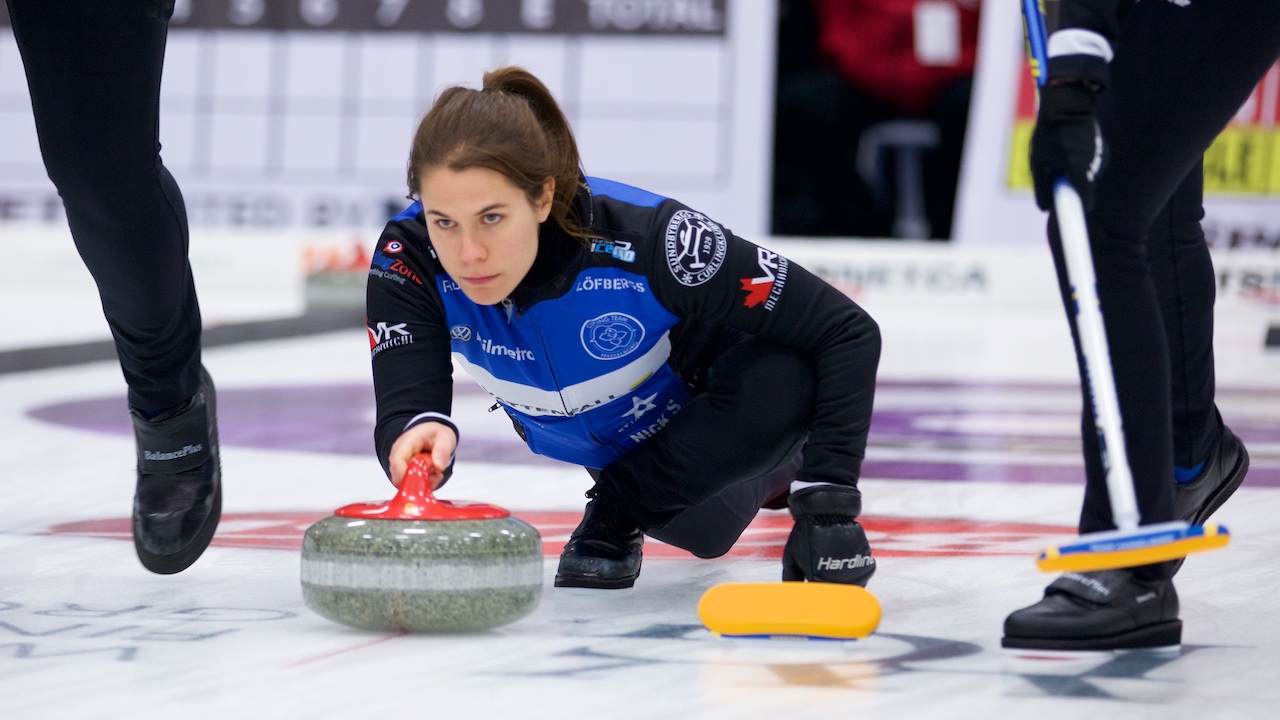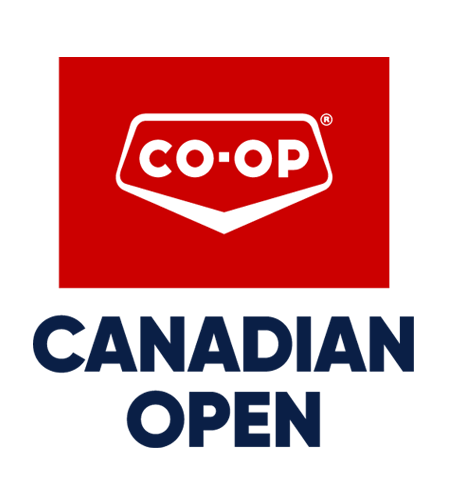Eight Ends: Meridian Canadian Open storylines to watch
The Pinty’s Grand Slam of Curling tour resumes this week with the Meridian Canadian Open in Yorkton, Sask.
Sixteen of the top men’s teams and 16 of the top women’s teams from around the world will compete in the third major and fourth event of the series starting Tuesday night at the Gallagher Centre. Broadcast coverage begins Thursday afternoon on Sportsnet.
At stake is a $300,000 combined purse, divided equally between the men’s and women’s divisions, with the winners receiving $35,000 plus berths to the season-ending Humpty’s Champions Cup. Bonus points are also up for grabs towards the Pinty’s Cup, the season championship in the series.
Here are the main storylines you should know heading into the tournament:
1st End: The Meridian Canadian Open is unique among the Pinty’s Grand Slam of Curling events in that it’s the only one of the six to feature a triple knockout format instead of round-robin pools for preliminary play. Basically, teams must win three games before they lose three games in order to advance to the playoffs. Each loss drops the team into the lower bracket until they reach three losses and are eliminated. Two A-qualifiers (3-0 records), three B-qualifiers (3-1 records) and three C-qualifiers (3-2 records) move onto the quarterfinals.
What’s neat about the 16-team triple knockout is that teams always face another team with an identical record, making every game important. You don’t have a 0-3 team just playing for pride against a 3-0 team that has already qualified. As long as you’re still playing, you’re still in it to win it. Also, no tiebreakers. Teams don’t have to cross their fingers hoping that they’ll play another game based on how the rest of the field shapes up or rely on their draw-to-the-button shootout tally to keep them in. Win on the ice and you’re in control of your own destiny.
If there is a disadvantage to triple knockout, it’s you don’t know your opponents ahead of time. It’s cliche to say “take it one game at a time” but that’s what teams have to do here. Round-robin pools are also balanced out based on world rankings, so if two top teams struggle out of the gate in the triple knockout, they could be facing each other in an early must-win game with the loser eliminated. Think back to 2018 when Kevin Koe got off to a 0-2 start and had to oust John Morris, Brad Gushue and John Epping in quick succession in order to make the playoffs.
2nd End: The Meridian Canadian Open reverted to a triple knockout format in 2014, so you might be interested in a history lesson on Bracketology 101. Let’s take a look at what brackets teams qualified through en route to the finals in the past five seasons.
| Champions | Runners-up | Total | |
| A-qualifiers | 3 | 5 | 8 |
| B-qualifiers | 5 | 1 | 6 |
| C-qualifiers | 2 | 4 | 6 |
While A-qualifiers have made the most finals, B-qualifiers have won the most championships. If you’re going to lose one game during the week, best to get it out of the way early, right?
B-qualifiers were shut out from last year’s finals altogether though. Champions Rachel Homan and Brendan Bottcher were undefeated A-qualifiers while runners-up Silvana Tirinzoni and John Epping both came out of the C-side. Interesting to note that only one of the 10 finals since 2014 has featured two A-qualifiers facing off: John Epping versus Brad Gushue for the 2015 men’s championship.
There’s no right or wrong way to qualify as it all depends on a team’s comfort level. Some teams need to bring their A-game and get on a roll to win while others have to have that backs-against-the-wall mentality and grind it out.
3rd End: Nevermind at just one event, Anna Hasselborg is riding a season hot streak closing out the 2019 calendar year winning back-to-back GSOC titles at the KIOTI Tractor Tour Challenge and the BOOST National. Hasselborg also successfully defended the European championship and already kicked off 2020 in the win column helping Team Europe capture another Continental Cup just this past weekend in London, Ont.
Team Hasselborg look to become only the second women’s squad to claim three consecutive GSOC titles. Homan was the first accomplishing the feat in 2015 and again last season completing the trio right here at this event.
4th End: Brad Jacobs is also looking to make it three GSOC titles in a row over on the men’s side having captured the KIOTI Tractor Tour Challenge and BOOST National too. It’s a short list in the men’s division as well with just Kevin Martin (twice: 2004-05 and 2006-07 through 2007-08 when he won five straight) and Brendan Bottcher, who started his trio of titles at the Meridian Canadian Open last year.
Jacobs should be coming into this event well-rested and recharged following the holiday break and if you don’t believe me, hear it from the man himself.
5th End: If you haven’t noticed, all three GSOC events this season have featured a different Manitoba team in the women’s final. Tracy Fleury of East St. Paul captured the Masters while Kerri Einarson of Gimli and Winnipeg’s Jennifer Jones finished runner-up at the KIOTI Tractor Tour Challenge and BOOST National, respectively.
The streak ends here insofar as there isn’t a fourth women’s team from Manitoba competing in the Meridian Canadian Open but you shouldn’t rule out any of the trio making a repeat appearance. All three teams are ranked within the top seven in the world with Fleury as the front-runner sitting second overall behind Hasselborg. Whomever of the three does the best here will also carry momentum into provincial playdowns to determine Manitoba’s representative for the Scotties Tournament of Hearts.
6th End: It’s also close to crunch time for qualifying into the Humpty’s Champions Cup. While the end of April may seem like it’s far away, the Meridian Canadian Open is the final GSOC event for teams to receive a ticket into the season finale. Teams will need to win a national title like the Tim Hortons Brier or Scotties Tournament of Hearts or the world championship from here on out if they wish to guarantee direct entry.
There are a few notables who have yet to receive an invite although not all of them need to worry. Jacobs and Hasselborg’s multiple titles mean winners of high-profile tour events will help round out the 12-team men’s and women’s fields in Olds, Alta. Those that haven’t won on tour either are the ones in the danger zone. Brad Gushue has finished runner-up at two GSOC events this season but needs a big win soon in order to get in. Likewise, Chelsea Carey is also on the outside looking in for the Humpty’s Champions Cup right now.
7th End: Korey Dropkin of the United States and South Korea’s Min-ji Kim move on up to the elite ranks at the Meridian Canadian Open. Both earned promotions by winning the KIOTI Tractor Tour Challenge Tier 2 titles in November.
Team Dropkin had a slow start to the season but have found their form lately adding another title win at the Curl Mesabi Classic and finishing runner-up in the China Open. If you’re looking for an underdog to pull off some upset wins, they could be it.
Although the Team Kim squad are young, all 20 years old, they already have big-game experience capturing bronze at the world championship last year. They could be a surprise here.
8th End: It’ll be interesting to see how Satsuki Fujisawa’s team fares following their remarkable run to the BOOST National semifinals. Lead Yurika Yoshida was ill and did not join the Japanese club on the trip and her teammates carried on as a trio.
Yoshida is expected to re-join the team for the Meridian Canadian Open. Considering they also reached the semifinals at the KIOTI Tractor Tour Challenge as a foursome, they’re definitely in the title conversation.

